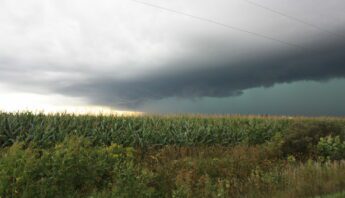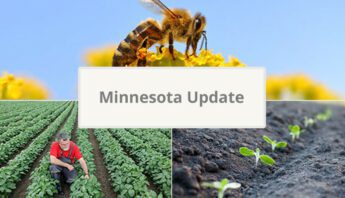We are standing at the gateway to another growing season, and with it comes a whole host of changes in the life of a farmer. When the gate of Spring opens, I find that the time for planning comes to an end and the moment for doing begins in earnest. In the spirit of doing, I want to get right to the content I wanted to share with you this April.
I hope you find information here useful and my wish is that you will also allow yourself time to revisit the wonder and promise that is Spring. Let it renew your purpose to do what you can to help make this world a better place for us all to live well.
Rob is hosting a PFI farminar!
Speaking of moving from planning to doing, I will have the opportunity to lead a farminar, sponsored by Practical Farmers of Iowa, titled Pesticide Drift: What to Know. This virtual event will be held on Tuesday, April 5, beginning at 7pm CDT. Registration is open to all.
While this farminar will have an Iowa focus, there will be plenty of information that can be applied wherever pesticide misapplication is possible. This is the newest of an excellent series of resources pertaining to herbicide drift that can be found on PFI’s website.
I look forward to seeing you there!
Dicamba still in the news
The Environmental Protection Agency (EPA) released new label requirements for the use of over-the-top (OTT) dicamba in Minnesota and Iowa. The new cut-off date for application of these products is June 20 in Iowa, and application cannot occur when the temperature is over 85 degrees.
I found the following statement provided in the EPA release on March 15 to be very interesting and it provides useful context:
“Despite the control measures implemented in EPA’s October 2020 dicamba registration decision, incidents from the 2021 growing season show little change in number, severity, or geographic extent of dicamba-related incidents when compared to the reports the Agency received before the 2020 control measures were required.”
Unfortunately, I am not convinced that these new use-label restrictions will do anything more to address the problems presented by this pesticide in OTT applications. If anything, a combination of defensive planting by farmers and increasing reticence to report in the face of inadequate response will do more than these changes to reduce dicamba-related incidents.
In other news, the EPA just announced that another 134 counties in the United States have been approved for the use of Enlist products. Enlist One and Enlist Duo, two herbicides used on genetically-modified corn, cotton, and soybean crops, can now be used in all counties of Arkansas, Kansas, Minnesota, Missouri, Nebraska, Ohio, Oklahoma, and South Dakota.
The on-the-ground evidence has illustrated that these products are dangerous and should be removed from use. However, the EPA seems content to make token changes to the use-labels while expanding their availability. As a grower who has dealt with crop losses due to the volatility of these pesticides, I am very disappointed in the current trends.
Pesticides in legislative bills
Legislation continues to move in the Iowa House and Senate, and it can be difficult to stay on top of changes this time of year — but this is where things stand at the beginning of April.
The Agriculture and Natural Resources Appropriations Bill (HF 2560), includes funding for additional staff in the Iowa Department of Agriculture and Land Stewardship (IDALS). Some of these funds add to the IDALS administrative staff, but the early language that requested funds in the appropriations bill for additional Pesticide Bureau staff is no longer present. As a result, it is not clear whether IDALS would be hiring to provide aid to those who enforce pesticide use label law in the state.
Meanwhile, the Agriculture Omnibus is now labeled HF 2581, and this version of the bill has one change of note. The registration fee for pesticides within the state would be altered from a fee based on a percent of sales (0.2%) to a flat fee of $300. According to the Fiscal Note for Agriculture Omnibus bill, this would have resulted in an average of about $300,000 in reduced income for five of the past six years, with 2021 being the only exception. This seems to be an unnecessary step backward when it is clear these funds are needed if the state is to perform its enforcement duties with respect to pesticide use. This language is not currently present in the Senate version of the Agriculture Omnibus (SF 2230), but we’re keeping an eye on it.
Court supports chlorpyrifos ban
Pesticide industry representatives filed a motion in the 8th Circuit Court to delay the implementation of the ban of chlorpyrifos, a pesticide known to harm children, on food and feed crops in the United States. This motion was denied and the ban will remain in place.
This is good news! We must hold our successes up even as we consider the challenges we have before us. We know we’re making a difference.
Take Action! Support PACTPA
If we want to be better stewards of the land, we need legislation that supports that effort. Let’s tell Senators Ernst — who is on the committee that would consider this bill — and Grassley that we need to protect our children, our communities, our farmworkers, and our environment. Let them know that we think PACTPA is a step towards a better future for Iowa and the nation!







